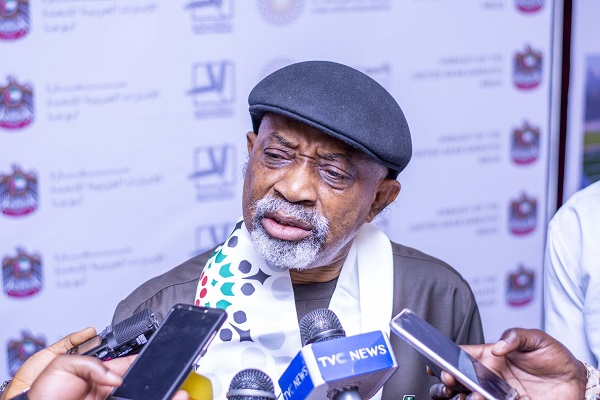
Newsonline reports that the federal government, on Thursday, set up a monitoring team to identify states that are not implementing the salary.
It announced that the implementation of the National Minimum Wage was critical to national development.
This development is coming Four years after the introduction of the National Minimum Wage (NMW) of N30,000 a month.
This was disclosed by the Minister of Labour and Employment, Dr Chris Ngige, at a public enlightenment and sensitisation workshop for field officers monitoring the implementation of the National Minimum Wage in Abuja, which was organised by the National Salaries Incomes and Wages Commission.
Ngige said, “Ensuring compliance with the National Minimum Wage Act would ensure that workers were not short-changed.
“A satisfied worker would contribute effectively and efficiently to the sustainability and growth of an enterprise. This will in turn contribute to national development and less disruptions in productivity, occasioned by industrial actions.
“There is an urgent need, therefore, to ensure a minimum living wage to all employed and in need of such protection and attain a just and equitable share of the fruits of progress.”
Speaking further, he said the formal and informal sectors were represented during the collective bargaining mechanisms that produced the Act.
He said that, no establishment could claim ignorance or non-involvement in reaching the collective bargaining agreement on the minimum wage. He stated that all establishments were bound by the Act.
At the workshop, the minister said the training was critical to implementing the mandate of the ministry and the NSIWC.
He noted that Section 12 of the Act, titled “Monitoring and Compliance”, indicated that the Ministry would collaborate with NSIWC to monitor the implementation of the national minimum wage.
He said, “It is also their responsibility to keep social partners informed of the process, to address any identified non-compliance with provisions of the act. The workshop is meant to enlighten and sensitise the stakeholders who are statutorily assigned the duty of monitoring and ensuring compliance.
“I hope you will be drilled thoroughly in the art of interaction with capital and labour and the inherent dialectics between the factors of production to protect rights at work.”
He added, “I also hope that at the end of the workshop, you will be knowledgeable of the act and adequately arm yourselves in the execution of your monitoring and enforcement duties,” he said.
The NSIWC Chairman, Mr Ekpo Nta, said the commission was determined to implement its mandate to the letter, particularly in the area of salaries and wages.
The Chairman, who was represented by the NSIWC Commissioner, Dr Mojisola Kolade, explained that the commission would go all out to address the problem of wage theft.
He said, “The commission will ensure that people are not short-changed when it comes to salaries and wages. We want the money to be given to the right persons.”
On why implementation and monitoring were coming about three years after the national minimum wage act was signed into law, Nta said the commission was constrained by funds.
He said although the commission was still battling with funding, it had to embark on the exercise, which would commence in the first quarter of 2023 because of its determination for efficiency.
On productivity, he said, “For Nigeria to be successful, working has to be productive”.
Nta said, “It was important for agencies that would be monitored in the exercise to cooperate with the commission. The compensation business is a serious business, and we urge agencies to open their books and tell us the truth. Even with infractions we will sit and talk”.
The stakeholders commended the move by the Federal Government to monitor the implementation of the wage and expressed concern that some states of the federation were not complying with it, leading to hardship and less productivity.
While saying that the move was late in view of the fact the N30,000 minimum wage came into effect since 2019, the stakeholders, however, said “It is better late than never.”
Governor Fubara has stormed the Rivers Assembly amid his impeachment saga. NewsOnline Nigeria reports…
Experts have stated that CBN’s policies opened doors for manipulators. NewsOnline Nigeria reports that…
A Powerful Politician has been sent to prison over criminal investigation interference. NewsOnline Nigeria…
Airbus reports First Quarter (Q1) 2024 results 142 commercial aircraft delivered Revenues € 12.8 billion; EBIT…
Sirika has been granted N300 million bail alongside his family members in EFCC's multi-billion fraud…
Reps have ordered CBN to suspend the implementation of the Cybercrime Levy. NewsOnline Nigeria…